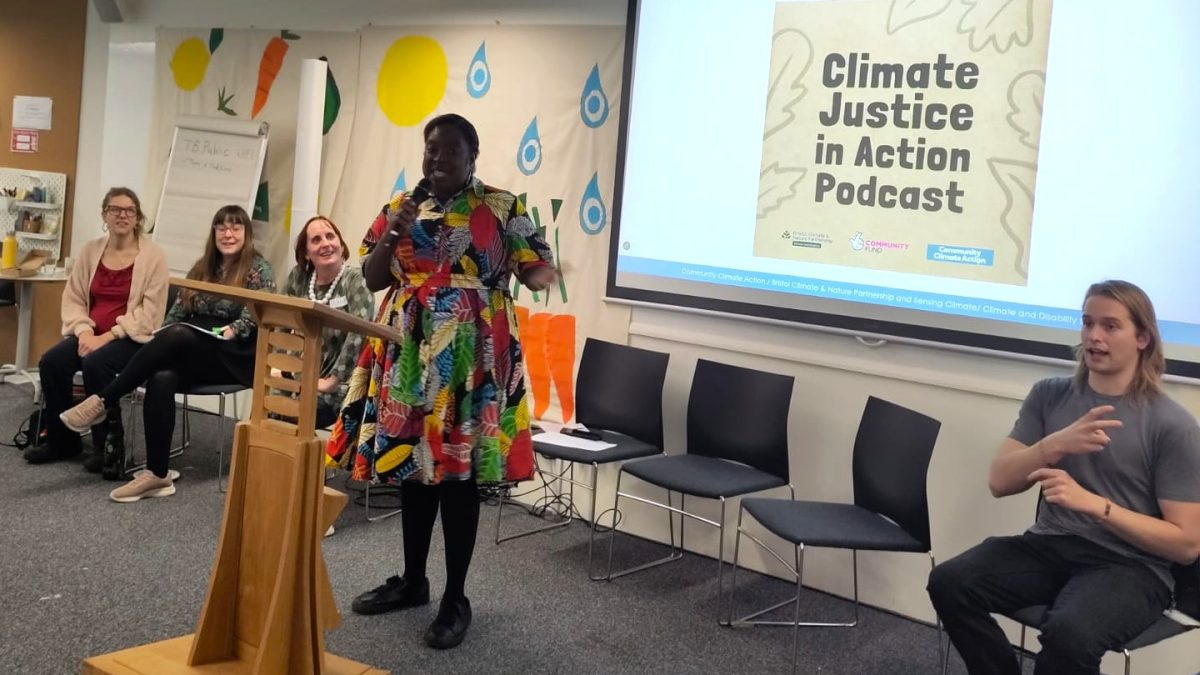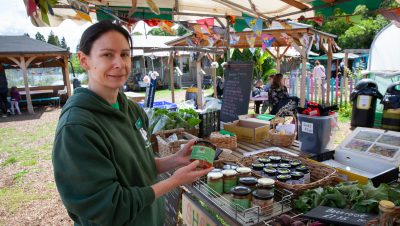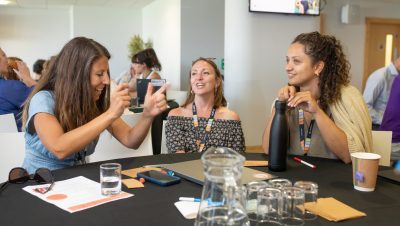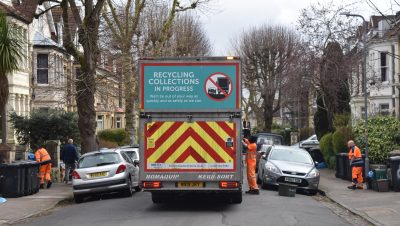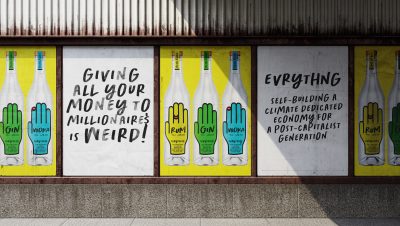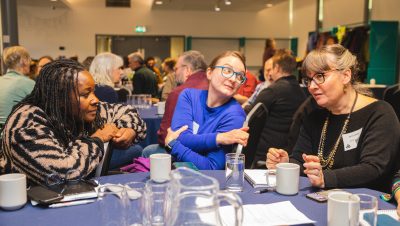Features / Just Transition
‘It’s not a privilege, it should be a right’ – Centring new voices in climate action
In conversation at the Connecticut Forum in 2001, celebrated author and academic Toni Morrison delivered a powerful statement on trauma, survival and finding meaning:
“It’s a nice fat…philosophical question about: how do you get through? Sometimes you don’t survive whole, you only survive in part. But the grandeur of life is that attempt. It’s not about that solution. It is about being as fearless as one can, behaving as beautifully as one can, under completely impossible circumstances.”
Two decades later, in Bristol, Ruth Nortey embodies that same philosophy. After becoming disabled in her early 20s from lupus Nortey, a social and climate activist and scholar, began challenging systemic barriers and mainstream climate action.
is needed now More than ever
Her visual impairment fuelled her sense of justice and directed her towards something more interesting than slowing down.
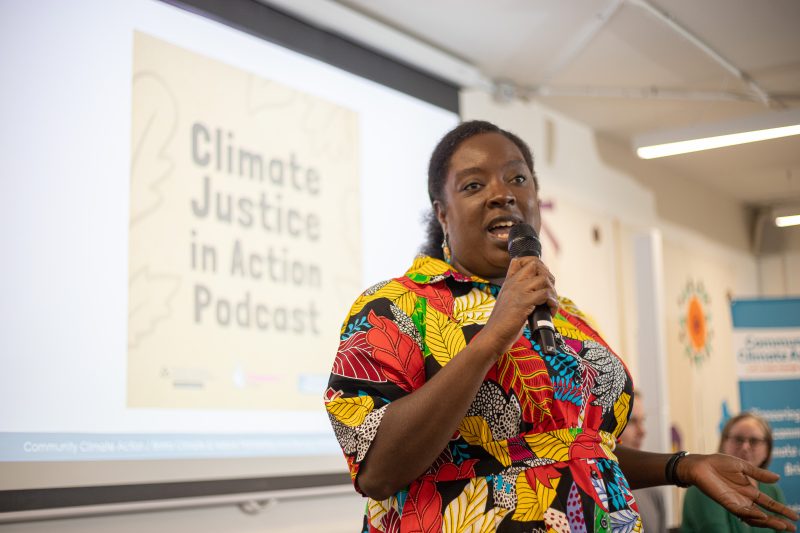
Nortey presented her podcast series, which explores the intersection of race, disability and climate action through interviews with Bristol activists, at a recent meeting of Bristol Climate & Nature Partnership – photo: ShamPhat Photography
“There was an assumption that because I couldn’t see, I wouldn’t be able to continue my degree,” Nortey recalls. “But I finished my French and Japanese studies, and that experience opened my eyes to the barriers disabled people, especially those from Global Majority backgrounds, face.
Nortey’s journey underscores a powerful testament to intersectionality and resilience. As a Black disabled woman and mother, she adds a unique perspective that challenges the mainstream climate movement.
But amid her activism fuelled by her identity, she shares that sometimes she’d just like to be herself.
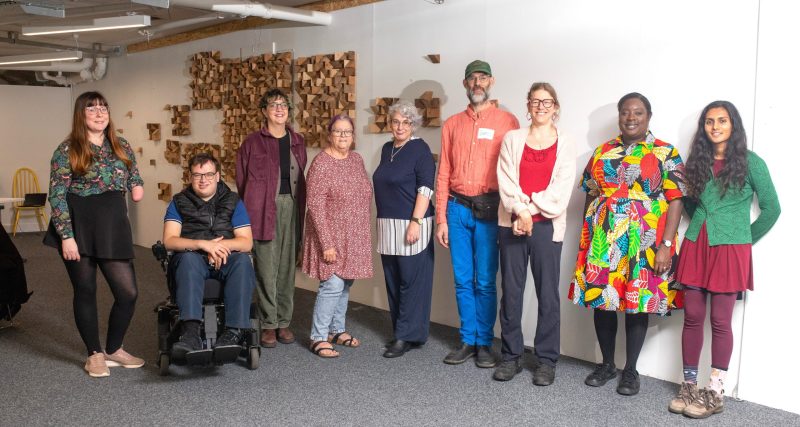
Bristol’s Climate and Disability programme, of which Nortey is a part, aims to open up the world of climate action to make it truly inclusive and equitable – photo: ShamPhat Photography
Her work isn’t only about disability but Nortey inherently understands the complex intersections of identity and environmental justice.
“I realised I’m not just one thing,” she explains. “I’m a disabled woman, a Black woman, a mother – and each of these identities shapes how I see climate action.”
The Black and Green Ambassadors programme – a collective experience for activists from Global Majority backgrounds who don’t see themselves represented in climate action spaces – became her entry point into climate activism. Initially hesitant, Nortey eventually found a platform to amplify marginalised voices.
She wrote and co-created a podcast series called Climate Justice in Action, as part of Bristol Climate & Nature Partnership’s Climate and Disability programme. In the podcast she unpacks jargon around climate change, to stop the conversation around the issue excluding key voices.
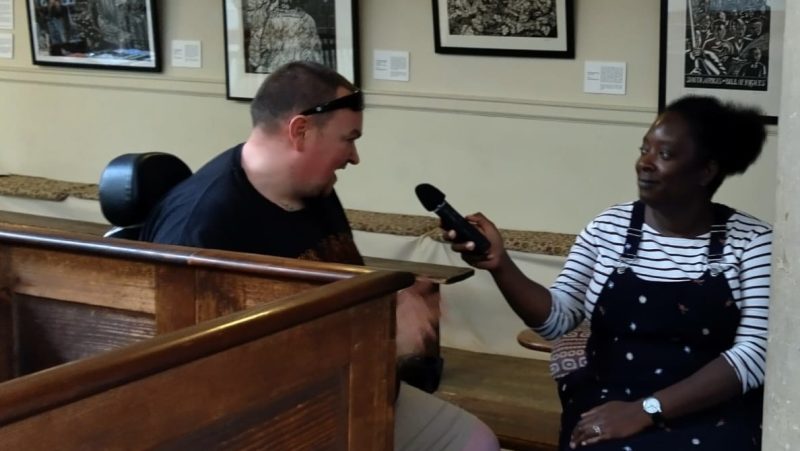
For the pod series Nortey interviewed people – like Oliver Woods, pictured – involved in different climate action projects in Bristol including those from Global Majority backgrounds, people with disabilities and neurodiverse individuals – photo: Ruth Hennell
“Sustainability isn’t a new concept for Global Majority families,” Nortey points out.
She recalls her mum’s practices – using public transport, walking instead of driving, repairing clothes and minimising waste, long before these became ‘mainstream’.
While Global Majority people historically have a strong connection with nature, Nortey shed light on the importance of safe and quality green spaces for everyone: “It’s not a privilege, it should be a right.”
This perspective is crucial. Many sustainable practices have roots in indigenous histories yet mainstream environmental movements often fail to acknowledge and celebrate these strides. Nortey sees this as a critical missed opportunity for genuine climate justice.
Her work is also deeply personal, informed by the lived experiences of being a caregiver.
She envisions a future with clean air, accessible green space and reduced inequalities: “My son, my niece and my nephew have led me to think about this. The younger generation has affected me and made me want to continue this work.”
The emotional labour of activism weighs heavily. Reflecting on her love for storytelling and bringing people together, Nortey speaks candidly about the burnout experienced by Global Majority activists constantly asked to solve systemic problems without meaningful support.
“Organisations ask for our insight but rarely listen or implement our solutions,” she explains. This cycle of extraction without true inclusion is exhausting.
Her podcast and activism aim to change this narrative. By amplifying diverse voices and creating accessible spaces for conversations, she’s on her way to build an environmental movement that doesn’t leave anyone out.
She supports grassroots organisations in Bristol such as Nature Rising and the Black Seeds Network, attending and enjoying their diverse events which centre Global Majority experiences and knowledge in climate justice.
View this post on Instagram
For young people from diverse backgrounds interested in climate activism, Nortey takes stock of the current state of the job market and cost of living crisis.
Her advice is clear: get involved and protect your wellbeing. “Start by connecting with community organisations,” she suggests. “Look for spaces that genuinely value your knowledge and experience, not that just want to tick diversity boxes.”
Her vision is rooted in collective action. She sees climate justice as a transformative opportunity to alter societal power struggle. “If we can make these transitions equitably,” she says, “we can create a more balanced world where everyone has a meaningful stake.”
Nortey represents a new generation of climate activists – those who understand that environmental justice is tied to social justice.
Her story is a powerful reminder that meaningful change comes from centring marginalised voices, listening deeply and creating spaces where everyone can contribute.
As Bristol continues to evolve its approach to climate action, voices like Nortey’s are essential. She transforms personal challenges into collective hope, proving that true environmental activism is about connection, intersectionality and honesty.
This piece was produced by Medha Ghosh as part of Bristol24/7’s Youth Climate Reporter scheme which seeks to amplify underrepresented voices and broaden the range of perspectives and stories we tell on environment issues. The scheme is funded by Bristol City Council and our public and Better Business members.
Main image: Ursula Billington
Read next:
 Our newsletters emailed directly to you
Our newsletters emailed directly to you